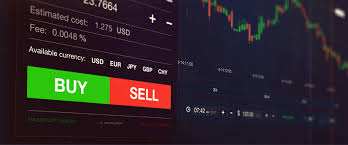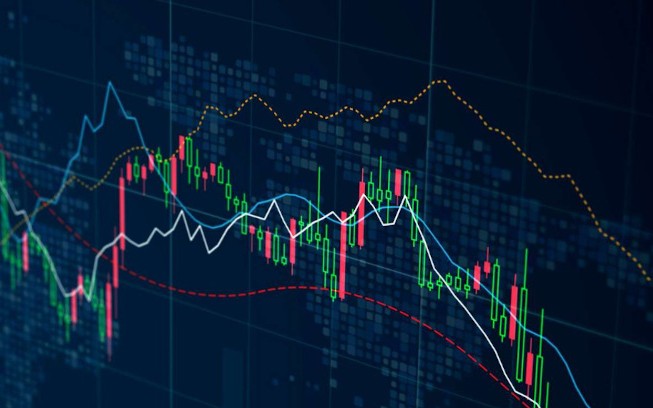
In the ever-evolving landscape of financial markets, investors often turn to forex trading brokers Global Trading Brokers for guidance in navigating the complexities of Forex trading. The choice of a broker can significantly influence the overall trading experience, including access to various currency pairs, trading tools, and customer support. As the Forex market continues to grow, so does the number of brokers offering their services. This article aims to provide you with essential criteria for choosing the right Forex trading brokers that align with your financial goals and trading style.
Understanding Forex Brokers
Forex brokers act as intermediaries between traders and the interbank market. They facilitate currency trading by providing platforms where traders can open and close positions based on market fluctuations. The primary role of a broker is to enable access to the Forex market while providing a range of services designed to make trading easier and more efficient.
Types of Forex Brokers
There are several types of Forex brokers, each catering to different trading needs and preferences. Understanding these types helps traders choose the most suitable broker for their trading style:
- Market Makers: These brokers create a market for traders by providing liquidity and setting bid and ask prices. They profit from the spread between these prices.
- ECN Brokers: Electronic Communication Network (ECN) brokers connect traders directly to other participants in the Forex market, including banks and financial institutions. They charge commissions but offer tighter spreads.
- STP Brokers: Straight Through Processing (STP) brokers also connect directly to liquidity providers, but they may add a markup to the spread instead of charging a commission.
- DMA Brokers: Direct Market Access (DMA) brokers provide clients with direct access to the interbank market, allowing for faster execution and lower spreads.
Key Factors to Consider When Choosing a Forex Broker
Selecting the right Forex trading broker requires careful consideration of several key factors. Here are the most critical aspects to evaluate:

1. Regulation and Licensing
One of the most crucial factors is whether the broker is regulated by a recognized authority. Regulatory bodies such as the Financial Conduct Authority (FCA) in the UK, the Commodity Futures Trading Commission (CFTC) in the USA, and the Australian Securities and Investments Commission (ASIC) ensure that brokers adhere to strict standards to protect traders’ interests. Choosing a regulated broker helps minimize risks associated with fraud and ensures a level of security for your funds.
2. Trading Platform
The trading platform is essential for executing trades, analyzing market trends, and accessing various tools and features. Popular trading platforms like MetaTrader 4 (MT4) and MetaTrader 5 (MT5) are known for their user-friendly interface, extensive charting tools, and automated trading capabilities. Ensure that the broker provides a platform that meets your trading needs and is compatible with your devices.
3. Spreads and Commissions
The cost of trading is a significant consideration when selecting a Forex broker. Brokers make money through spreads – the difference between the buying and selling prices. Some brokers offer tight spreads but charge higher commissions, while others may have wider spreads with lower or no commissions. Analyze the overall trading costs to determine what is most suitable for your trading strategy.
4. Leverage Options
Leverage allows traders to control larger positions with a smaller amount of capital. While this can amplify potential profits, it can also increase losses. Different brokers offer varying leverage levels, so it’s essential to find one that aligns with your risk tolerance and trading strategy. Be wary of excessively high leverage, as it may lead to substantial financial risks.

5. Customer Support
Effective customer support can be invaluable, especially for new traders who may require assistance. Evaluate the broker’s support channels, such as live chat, email, and phone support, as well as the operating hours. Responsive and knowledgeable customer service can enhance your overall trading experience and provide peace of mind when issues arise.
6. Educational Resources
Quality educational resources can empower traders to make informed decisions and improve their trading skills. Many brokers offer webinars, tutorials, articles, and demo accounts to help traders learn and practice without risking real money. Look for brokers that provide comprehensive educational materials tailored to different experience levels.
Reputation and Reviews
Researching a broker’s reputation and reading customer reviews can provide insights into their reliability and service quality. Online forums, review sites, and trading communities can offer valuable feedback from other traders about their experiences with a broker. Actively seeking information and experiences shared by other users can help you make a well-informed choice.
Conclusion
In conclusion, choosing the right Forex trading broker is crucial for your trading success. By considering factors such as regulation, trading platform, costs, leverage options, customer support, and educational resources, you can find a broker that aligns with your needs and trading style. Remember to conduct thorough research and take your time in making your decision. With the right broker by your side, you can navigate the Forex market with confidence and increase your chances for success.


لا تعليق